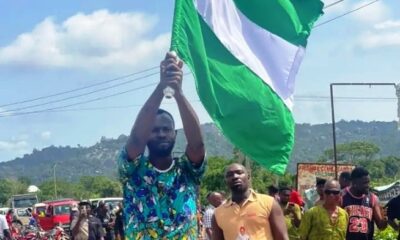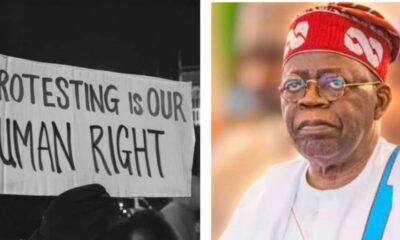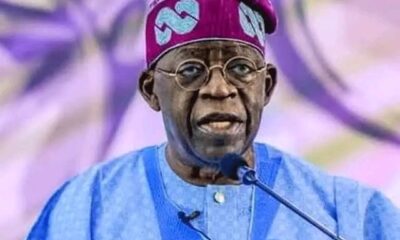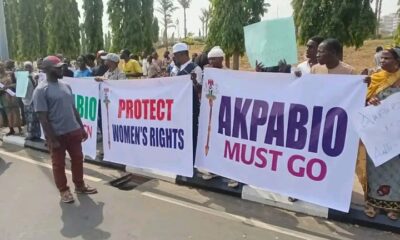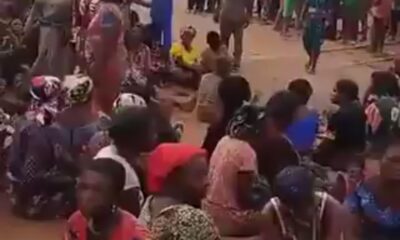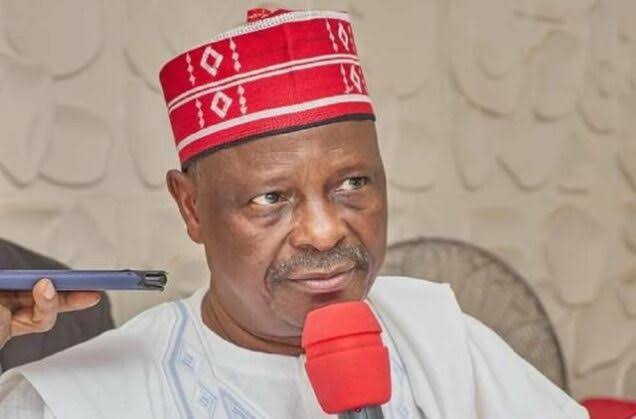National News
NLC suspends planned protest

The Nigeria Labour Congress (NLC) has suspended its planned nationwide protest against the recent 50% increase in telecommunication tariffs following a meeting with a delegation from the Federal Government led by the Secretary to the Government of the Federation (SGF), George Akume, on Monday.
According to a statement by Segun Imohiosen, Director of Information & Public Relations in the SGF’s office, the meeting aimed to maintain industrial harmony and protect the interests of Nigerians.
Speaking on behalf of the government, Minister of Information and National Orientation, Mohammed Idris, explained that the meeting reviewed the study conducted by the Nigerian Communications Commission (NCC), which led to the tariff hike.
Following extensive deliberations, both parties agreed to set up a 10-man committee comprising five representatives each from the Federal Government and the NLC. The committee has been tasked with reviewing the NCC’s study and submitting its findings within two weeks.
“Labour and the Federal Government have set up a committee of five members each. We will meet continuously over the next two weeks, after which we will present our recommendations for final consideration,” Idris said.
NLC President, Comrade Joe Ajaero, stated that the union would await the committee’s findings before deciding on its next course of action.
The meeting was attended by key government officials, including Minister of Communications and Digital Economy, Bosun Tijanni; Minister of Finance and Coordinating Minister of the Economy, Wale Edun; NCC Executive Vice Chairman and CEO, Dr. Aminu Maida; Minister of Labour and Employment, Alhaji Mohammed Maigari Dingyadi; Minister of Budget and National Planning, Atiku Bagudu; and National Security Adviser, Nuhu Ribadu, among others.
Last week, the NLC announced plans for a nationwide mass rally on Tuesday, February 4, 2025, to protest the tariff hike, arguing that it would further burden Nigerians already struggling with inflation, high fuel prices, and electricity tariff hikes, despite earning a minimum wage of just ₦70,000.
-
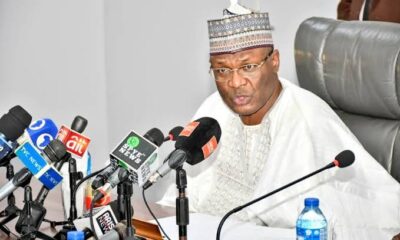
 Politics2 days ago
Politics2 days agoINEC sets dates for Ekiti, Osun governorship elections
-

 Sports2 days ago
Sports2 days agoNFF President visits injured Taiwo Awoniyi
-

 Metro News2 days ago
Metro News2 days agoMan collapses as Wife delivers triplets
-

 Sports2 days ago
Sports2 days agoTransfer: Antonio Conte agrees to stay at Napoli ahead of next season
-

 Metro News2 days ago
Metro News2 days agoKure expresses sympathy over Mokwa floods tragedy
-

 Sports2 days ago
Sports2 days agoUCL: Inter Milan ready to make history against PSG – Acerbi
-

 Sports1 day ago
Sports1 day agoMessi returns as Argentina announce World Cup team
-
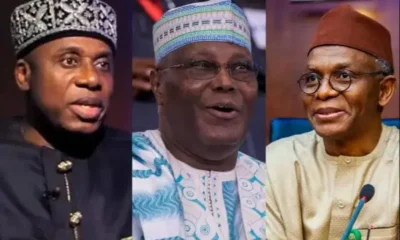
 Politics17 hours ago
Politics17 hours agoWhy Tinubu’s APC must go in 2027– Atiku, El-Rufai, Amaechi


